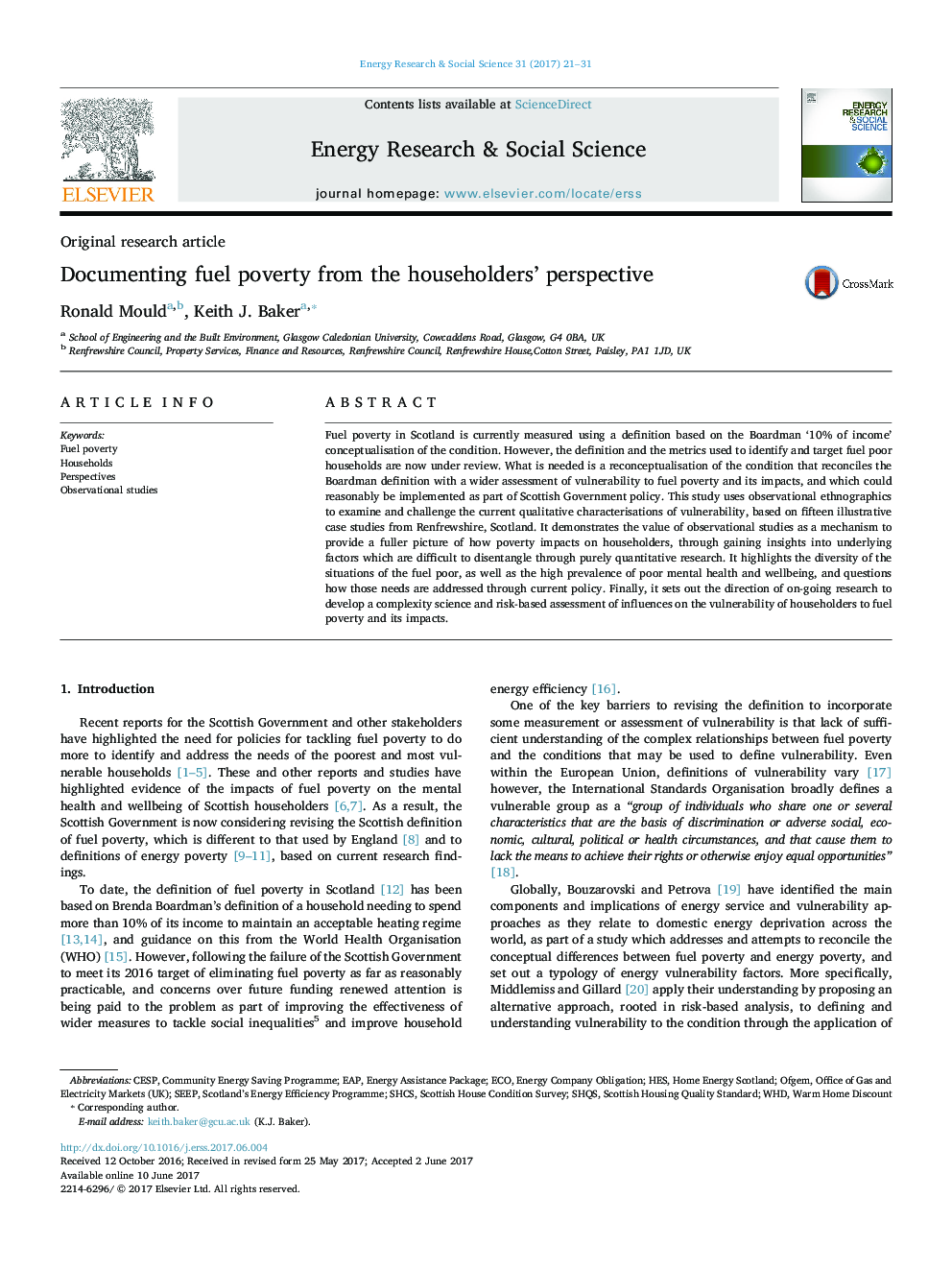| Article ID | Journal | Published Year | Pages | File Type |
|---|---|---|---|---|
| 6463829 | Energy Research & Social Science | 2017 | 11 Pages |
Fuel poverty in Scotland is currently measured using a definition based on the Boardman '10% of income' conceptualisation of the condition. However, the definition and the metrics used to identify and target fuel poor households are now under review. What is needed is a reconceptualisation of the condition that reconciles the Boardman definition with a wider assessment of vulnerability to fuel poverty and its impacts, and which could reasonably be implemented as part of Scottish Government policy. This study uses observational ethnographics to examine and challenge the current qualitative characterisations of vulnerability, based on fifteen illustrative case studies from Renfrewshire, Scotland. It demonstrates the value of observational studies as a mechanism to provide a fuller picture of how poverty impacts on householders, through gaining insights into underlying factors which are difficult to disentangle through purely quantitative research. It highlights the diversity of the situations of the fuel poor, as well as the high prevalence of poor mental health and wellbeing, and questions how those needs are addressed through current policy. Finally, it sets out the direction of on-going research to develop a complexity science and risk-based assessment of influences on the vulnerability of householders to fuel poverty and its impacts.
